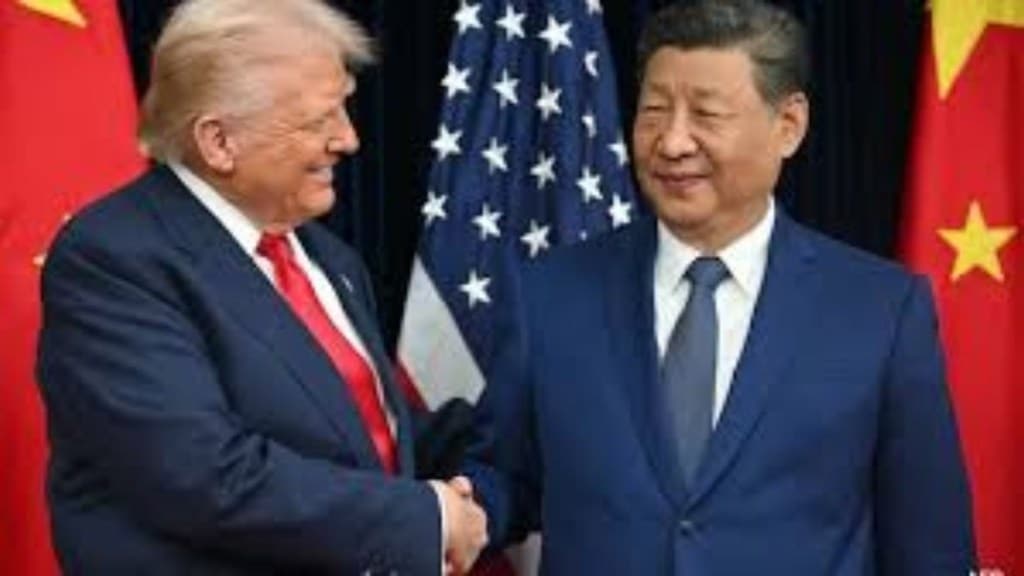The positive atmospherics of the first in-person meeting since 2019 between US President Donald Trump and his Chinese counterpart, Xi Jinping, on the sidelines of an Asia-Pacific Economic Cooperation summit in Busan, South Korea, is a good augury for the global economy. Escalating tensions between the world’s two leading economies has threatened to fragment global trade and investment flows broadly into US-centric and Sino-centric blocs.
The outcomes at Busan follow the “preliminary consensus” arrived at earlier in Kuala Lumpur by their negotiators to extend a trade truce that is set to expire on November 10, on fentanyl and export control on rare earths. Trump agreed to reduce tariffs on China to 47% from 57% in exchange for Beijing cracking down on the illicit trade in fentanyl, keeping rare earth exports flowing for a year, and resuming purchases of soya beans.
A trade truce, however, is no guarantee for peaceful coexistence as these two powers struggle for global dominance. In an official statement, Xi frankly noted that “given our national conditions, we do not see eye to eye with each other. And it is normal for two leading economies to have frictions now and then”.
The Sino-US détente should also be good news for the 11-member Association of Southeast Asian Nations (ASEAN), some of whose leaders met Trump earlier in Kuala Lumpur. Xi’s desire to ensure the “steady sailing forward of the giant ship of China-US relations” should be music to the ears of ASEAN that has faced the brunt of the escalating tensions between these two great powers that have an outsized presence in the region. The US is the largest investor while China is the largest trading partner and has upgraded its free trade agreement with this grouping.
Trump states that the US is 100% with the region but his approach is largely transactional in slapping Malaysia, Thailand, and Cambodia with levies of 24%, 36%, and 49% respectively, and later negotiating them down to 19% after signing deals for critical minerals with Malaysia and brokering a peace deal between Thailand and Cambodia. For a region that struggles to maintain closer relations with both the US and China, the need is for more assurance from Trump that he values these nations more than just a trade transaction. The Trump-Xi handshake will be a relief for ASEAN that is reluctant to take sides.
The positive Busan tidings also will be received well in India as it hopes to engage with both the US and China on trade and investments. Trump, for his part, has signalled that the bilateral trade deal with India is imminent. The challenges are similar as both are great powers who use coercive economic measures to impose their will on relatively weaker economies. Trump has slapped sanctions of 25%—besides the 25% reciprocal tariffs on Indian goods—for importing Russian oil. As India considers diversifying its energy supplies as direct sanctions have been imposed on Russian oil producers, there is a possibility of a much lower overall US tariff.
China, too, has blocked shipments of rare earths, fertilisers, and tunnel boring equipment to India although there are signs that these restrictions are easing as both nations normalise relations. The decision to suspend restrictions on rare earth exports at Busan will be particularly welcome as both the US and China have decided to cooperate rather than confront one another, which is good news for the world.

